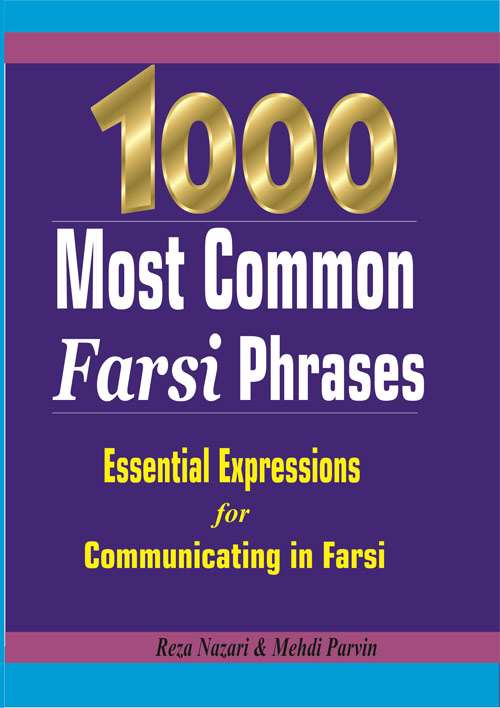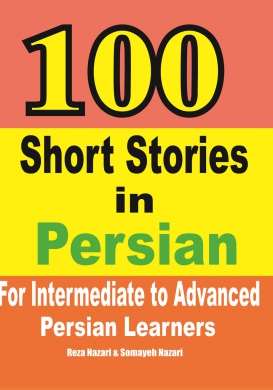
Adverbs play a crucial role in language to provide additional information about actions, time, place, manner, degree, and more.
For learners of Persian, understanding and effectively using adverbs is essential for developing fluency and expressing oneself accurately.
In this article, we will explore a collection of essential Persian adverbs that every learner should know. From describing time and frequency to indicating place and conveying manner, we will delve into various categories of adverbs, providing examples and explanations to deepen your understanding.
Whether you’re a beginner or an advanced learner, mastering these Persian adverbs will undoubtedly enhance your language skills and elevate your ability to communicate effectively.
Best Farsi Learning Resource!
1- Introduction to Persian Adverbs
What are adverbs?
Adverbs are like the spice rack of a language – they add flavor and depth to your sentences. In Persian, adverbs play a crucial role in conveying information about time, frequency, place, and much more. Essentially, adverbs are words that modify or describe verbs, adjectives, or other adverbs.
Importance of Persian adverbs in language learning
Learning Persian adverbs is essential for mastering the language and becoming a more fluent speaker. Adverbs allow you to express yourself more precisely, giving your sentences that extra oomph. Plus, adding adverbs to your vocabulary adds a touch of elegance and sophistication to your Persian skills.
2- Common Persian Adverbs for Describing Time

Basic adverbs for expressing time
When it comes to talking about time in Persian, adverbs are your trusty sidekicks. Some basic adverbs to add to your time-telling arsenal include “حالا – hâlâ” (now), “امروز – emruz” (today), and “فقط – faghat” (only).
Adverbs for indicating specific time frames
If you need to specify a specific time frame, Persian has got your back. Adverbs like “هفتگی – haftegi” (weekly), “ماهانه – mâhâne” (monthly), and “سالانه – sâlâne” (yearly) help you nail down the timing with precision.
Adverbs for talking about duration
Describing how long something takes? No worries! Persian adverbs like “خیلی – kheyli” (a lot), and “کاملا- kâmelan” (completely) can help you convey duration in a breeze.
3- Persian Adverbs for Expressing Frequency
Adverbs for discussing frequency in general terms
From occasionally to always, Persian adverbs for expressing frequency cover the entire spectrum. Use adverbs like “گاهی اوقات – gâhi oghât” (sometimes), “همیشه – hamishe” (always), and “بسیار به ندرت – besyâr be nodrat” (very rarely) to spice up your conversations about how often you do something.
Adverbs for indicating specific frequencies
Need to be more specific about how often you engage in an activity? Persian has got you covered. Adverbs like “روزانه – ruzâne” (daily), and “ساعتی – sâ’ati” (hourly) let you pinpoint the exact frequency like a pro.
Adverbs for expressing irregular or uncommon frequencies
Sometimes, your activities might fall into the irregular or uncommon frequency territory. Persian adverbs like “گهگاهی – gahgâhi” (occasionally), “به طور پراکنده – be tore parâkande” (sporadically), and “به صورت تصادفی – be surate tasâdofi” (randomly) give you the linguistic tools to express those elusive schedules.
4- Persian Adverbs for Indicating Place and Location

Basic adverbs for indicating place
When it comes to talking about place in Persian, adverbs can help you navigate the linguistic landscape. Use adverbs like “اینجا – injâ” (here), “آنجا- ânhâ” (there), and “داخل – dâkhel” (inside) to give your sentences that extra spatial dimension.
Adverbs for specifying location
Sometimes, you need to be more specific about a particular location. Persian adverbs like “نزدیک – nazdik” (close) and “دور – dur” (far) allow you to precisely describe the proximity or distance of an object or place.
Adverbs for expressing movement or direction
Need to express movement or direction? Persian has got the right adverbs for you. Whether it’s “به سمت – be samte” (towards), “دور – dur” (away), or “بطرف جلو – be tarafe jelo” (forward), these adverbs will help you navigate the language like a seasoned explorer.
5- Persian Adverbs for Conveying Manner and Degree
Adverbs for describing manner or how something is done
From the simple “به آرامی – be ârâmi” (slowly) to the expressive “بی دقتی – bideghati” (carelessly), these adverbs add spice to your sentences and give them that extra oomph.
Adverbs for expressing degree or extent
Persian adverbs have got you covered when you want to express the degree or extent of something in your sentences. So if you want to say that it’s ridiculously hot outside, you can use the adverb “به شدت – be shedat” (extremely). Or if you want to express that something is only somewhat difficult, you can use “نسبتا – nesbatan” (relatively). These adverbs make your sentences pop and let you emphasize just how much or how little something is.
Adverbs for indicating intensity or emphasis
Sometimes, regular adverbs just won’t cut it. When you really want to emphasize something in Persian, you need those power-packed adverbs that grab attention and make a statement. Use “hatâ” (even) to intensify the meaning of a verb or “قطعا – ghat’an” (Certainly) to convey a strong affirmation.
6- Persian Adverbs for Expressing Cause and Effect
Adverbs for indicating cause or reason
In Persian, adverbs can come to the rescue when you want to explain why something happened or give a reason for an action. Use “chon” (because) and “به دلیل – be dalile” (due to) to show causality and connect the dots in your sentences. These adverbs make your explanations crystal clear and leave no room for confusion.
Adverbs for expressing effect or consequence
What happens when you’re trying to convey the effect or consequence of an action in Persian? Well, lucky for you, Persian adverbs have your back once again! Use “بنابراین – banâbarin” (therefore) or “در نتیجه – dar natije” (As a result) to show the result or consequence of an action. These adverbs add depth to your sentences and make your writing more nuanced.
Adverbs for discussing conditions or hypothetical situations
When you find yourself discussing conditions or hypothetical situations in Persian, adverbs are your trusty companions. Use “اگر – agar” (if) or “در صورت – dar surate” (in case) to set the stage for a hypothetical scenario. These adverbs help you explore different possibilities and make your conversations more engaging.
7- Advanced Persian Adverbs for Enhancing Language Fluency
Adverbs for adding nuance or complexity
Once you’ve mastered the basics, it’s time to level up your Persian game with some advanced adverbs. These adverbs add nuance and complexity to your sentences, making them more sophisticated and interesting. Use “با توجه به – bâ tavajoh be” (regarding) or “بر این اساس – bar in asâs” (based on this) to delve deeper into a topic and show your language prowess.
Idiomatic expressions and adverbial phrases in Persian
Idioms and adverbial phrases are like the secret weapons of language fluency. In Persian, they add color and flair to your sentences, making you sound like a native speaker. So don’t be afraid to sprinkle some idiomatic expressions like “در یک آن – dar yek ân” (in a flash) or “به این ترتیب – be in tartib” (in this way/thus) in your conversations. They’ll bring your Persian skills to a whole new level!
Using adverbs to improve sentence flow and coherence
Remember, it’s not just about the words you use, but how you use them. Adverbs can help improve the flow and coherence of your sentences in Persian. Whether it’s using “در واقع – dar vâghe” (actually) to clarify a point or “برای مثال – barâye mesâl” (for example) to provide an illustration, these adverbs keep your sentences smooth and your writing engaging.
8- Further Resources

Congratulations! You’ve now become a Persian adverb aficionado. With these essential adverbs in your arsenal, you’ll be able to express yourself more precisely, emphasize your points, and add depth to your conversations. But remember, practice makes perfect, so keep using these adverbs in your language journey.
If you’re hungry for more Persian language resources, check out online courses, and language exchange platforms, or grab a copy of a Persian grammar book.
Conclusion
In conclusion, familiarizing yourself with essential Persian adverbs is a key step toward becoming a proficient speaker of the language.
The adverbs covered in this article provide a solid foundation for expressing time, frequency, place, manner, degree, cause, and effect in Persian. By incorporating these adverbs into your vocabulary and practicing their usage, you will greatly enhance your ability to communicate effectively and fluently.
With continued practice and exposure, you will soon master the art of using Persian adverbs with confidence and precision.
FAQ
1- Why are adverbs important in Persian language learning?
Adverbs play a significant role in Persian language learning as they provide additional information about actions, time, place, manner, degree, and more. Understanding and using adverbs correctly is essential for expressing oneself accurately and fluently in Persian.
2- Can I use these adverbs in everyday conversations?
Absolutely! The adverbs covered in this article are commonly used in everyday Persian conversations. By incorporating them into your vocabulary and practicing their usage, you will be able to express yourself more effectively and naturally.
3- Are there any resources available for further adverb learning?
Yes, there are numerous resources available for further learning. Apart from textbooks and online courses, you can also engage in language exchanges or conversation practice with native Persian speakers. Additionally, websites dedicated to Persian learning can provide valuable resources and opportunities for practice.
4- Are there any regional variations in Persian adverbs?
While Persian adverbs generally have consistent usage across different regions, there might be some regional variations or colloquialisms. It’s always advisable to consider the context and the specific region or dialect you are learning or interacting with.
Special Offers!
by: Learn Persian Online Team about (category: Blog)

















What people say about "Essential Persian Adverbs Every Learner Should Know"?
No one replied yet.